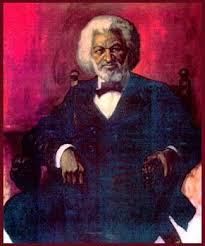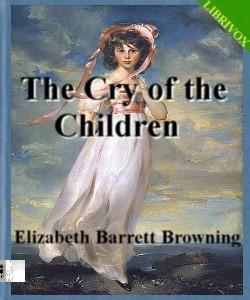
The United States has always been the ideal for a better life and the sought-after ‘all-American dream’. Thanks in large part to the founding fathers with their inspirational words and declarations, freedom of choice is available for each and every United States citizen: “We hold these truths to be self-evident, that all men are created equal, that they are endowed by their Creator with certain unalienable Rights, that among these are Life, Liberty and the pursuit of Happiness,”. While these words convey a sense of a just government coupled with equality for all, neither of those concepts were always implemented or accepted as the status quo. Before the Civil War, two great men had similar thoughts about what was wrong with the United States government: Henry David Thoreau and Frederick Douglass. Both of these men had entirely different backgrounds, but Thoreau’s Civil Disobedience and Douglass’ What to the Slave is the Fourth of July have much in common concerning the legitimacy of the laws at the time.
 Civil Disobedience speaks of the fallacies of ‘big’ government. In fact, Thoreau believed in the idea of no government at all, claiming in his essay that when man was ready for it, they would govern themselves, (McMichael & Leonard, 2011). His ideas may have been rooted in common sense, but at the time they were radical. Radical was also the describing word for Douglass’ What to the Slave is the Fourth of July. He began by complimenting the founding fathers and their sacrifices, leading into a lamentation of slave’s oppressions in comparison with the ideas of freedom sustained only 76 years prior. Douglass explained quite eloquently how the Fourth of July was not a holiday to be enjoyed by all, because it was a celebration of freedom earned only for the white man. Slaves were in chains, at times literally, therefore the Fourth of July for a slave was a holiday that was a pantomime of freedom and equality. The arguments brought forth by Douglass and Thoreau appeared on the surface to be vastly different, but there are some common threads that bond them.
Civil Disobedience speaks of the fallacies of ‘big’ government. In fact, Thoreau believed in the idea of no government at all, claiming in his essay that when man was ready for it, they would govern themselves, (McMichael & Leonard, 2011). His ideas may have been rooted in common sense, but at the time they were radical. Radical was also the describing word for Douglass’ What to the Slave is the Fourth of July. He began by complimenting the founding fathers and their sacrifices, leading into a lamentation of slave’s oppressions in comparison with the ideas of freedom sustained only 76 years prior. Douglass explained quite eloquently how the Fourth of July was not a holiday to be enjoyed by all, because it was a celebration of freedom earned only for the white man. Slaves were in chains, at times literally, therefore the Fourth of July for a slave was a holiday that was a pantomime of freedom and equality. The arguments brought forth by Douglass and Thoreau appeared on the surface to be vastly different, but there are some common threads that bond them.
 Essentially, Douglass and Thoreau both desired a better government. Thoreau demonstrated this in Civil Disobedience, “But, to speak practically and as a citizen, unlike those who call themselves no-government men, I ask for, not at once no government, but at once a better government,” (McMichael & Leonard, 2011). Douglass also displayed his will for an improved government in What to the Slave is the Fourth of July
Essentially, Douglass and Thoreau both desired a better government. Thoreau demonstrated this in Civil Disobedience, “But, to speak practically and as a citizen, unlike those who call themselves no-government men, I ask for, not at once no government, but at once a better government,” (McMichael & Leonard, 2011). Douglass also displayed his will for an improved government in What to the Slave is the Fourth of July, “[…]
nations number their years by thousands. According to this fact, you are[the United States], even now, only in the beginning of your national career, still lingering in the period of childhood. I repeat, I am glad this is so. There is hope in the thought, and hope is much needed, under the dark clouds which lower above the horizon,” (McMichael & Leonard, 2011).
Civil Disobedience was not exactly an anti-slavery piece, but it called for men to use their conscience above all else, a sentiment which Douglass would have wholeheartedly agreed with, “Can there not be a government in which majorities do not virtually decide right and wrong, but conscience,” (McMichael & Leonard, 2011). Given Thoreau’s words, it can be safely assumed that he believed slavery to be an act unjustifiable, to be rectified by men with morals and a conscience.
The United States has had decades to evolve and learn from society’s many mistakes. However, over a hundred and fifty years ago, Henry David Thoreau’s Civil Disobedience and Frederick Douglass’ What to the Slave is the Fourth of July were two intelligent literary pieces that shared similar thoughts about the faults of the United States government and how to better it. Both men saw beyond themselves, differentiating what was truly important from the everyday monotonous tasks of human life. It takes a unique soul to recognize injustice, and an even braver soul to speak out against it. Thankfully, unique and brave men like Thoreau and Douglass paved the way for a better American way of living.
McMichael, G. & Leonard, J. S. (2011). Concise anthology of american literature. (Eds.).
New York, NY: Pearson Education, Inc.

